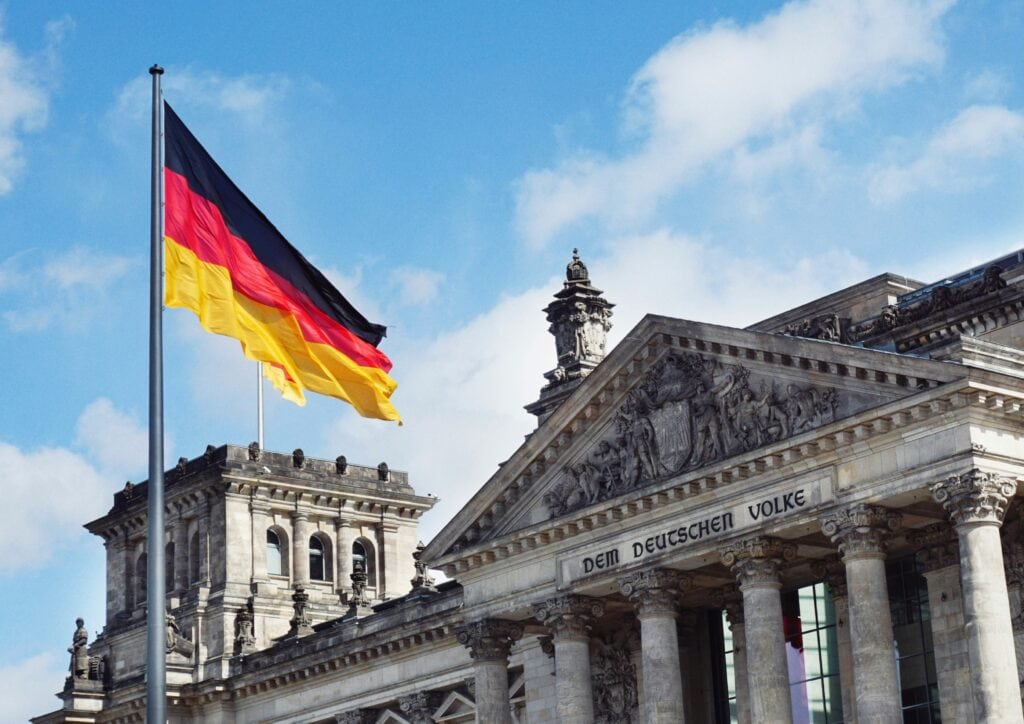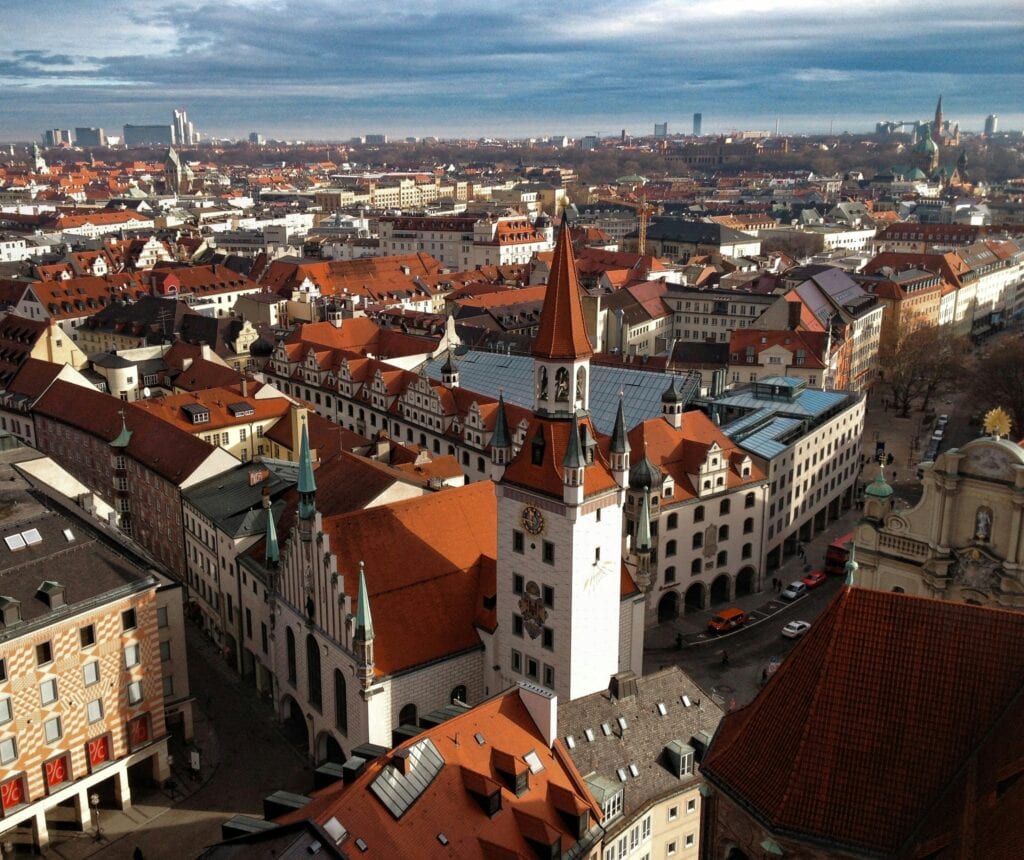Germany attracts thousands of skilled professionals every year with its strong economy, fair working conditions, and high living standards. Working abroad in Germany offers the chance to build a stable career while enjoying one of Europe’s most dynamic job markets. From engineering and IT to healthcare and research, opportunities span across many industries.
Those interested in moving often look into options like the EU Blue Card or the new Opportunity Card, both designed to make the process of securing employment smoother. With over a million job vacancies reported in recent years, the demand for skilled workers continues to grow, making it an ideal time to explore career prospects in Germany.
Beyond work, adapting to daily life brings its own rewards. Learning German, understanding workplace culture, and navigating local systems help professionals settle in and thrive long term. Germany’s combination of career opportunities and quality of life makes it a practical and appealing choice for anyone considering a move abroad.
Key Takeaways
- Germany offers strong career options in many industries
- Legal pathways and job search tools make relocation easier
- Success depends on adapting to culture and language skills

Requirements for Working Abroad in Germany
Foreign nationals who want to work in Germany must meet specific entry, employment, and qualification standards. These requirements vary depending on nationality, type of job, and level of education or training.
Eligibility Criteria for Foreign Workers
Germany welcomes skilled workers in fields such as healthcare, engineering, and information technology. To qualify, applicants usually need either a recognized vocational qualification or an academic degree.
Citizens of the EU, EEA, and Switzerland can work in Germany without a visa. Non-EU nationals must prove their skills and often need a job offer before applying for a permit.
The Federal Employment Agency defines skilled workers as those with either higher education or completed vocational training. Proof of professional experience may also strengthen an application.
In-demand roles, such as nursing and IT, may have simplified entry rules. Germany’s new immigration laws introduced in 2024 have made it easier for qualified workers from abroad to apply for residence and employment.
Visa and Work Permit Types
Foreign workers from outside the EU usually require both a visa and a residence permit. The visa is issued by a German embassy abroad, while the residence permit is obtained at local immigration offices after arrival.
One of the main permits is the EU Blue Card, which is designed for university graduates with a job offer that meets salary thresholds. It allows easier family reunification and can lead to permanent residency.
Another option is the Job Seeker Visa, which grants time in Germany to find employment. The Opportunity Card is a newer pathway that uses a points system to evaluate applicants based on skills, language ability, and work experience.
Special rules also apply under the Western Balkans Regulation, which provides access to the German labor market for nationals of certain countries, regardless of formal qualifications.
Recognition of Qualifications
To work in Germany, foreign degrees or vocational training must often be officially recognized. This process ensures that qualifications meet German standards.
The recognition procedure depends on the profession. Regulated fields like medicine, law, and teaching always require formal recognition. For non-regulated jobs, recognition is not mandatory but can improve employment chances.
Applicants can use the “Recognition Finder” tool on official websites to check requirements. More details are available on Make it in Germany.
Documents usually required include diplomas, transcripts, proof of work experience, and certified translations. Processing times vary, but applicants should expect several weeks or months.
If full recognition is not possible, partial recognition may be granted, allowing the worker to complete additional training or exams in Germany.

Finding Employment Opportunities
Germany offers structured ways for international workers to access job openings, with official portals, private listings, and government programs. Certain sectors face ongoing labor shortages, and application standards follow clear rules that applicants should prepare for in advance.
Job Search Platforms and Resources
Job seekers can use several platforms to find vacancies. The official Make it in Germany portal lists thousands of jobs and provides tools like the Opportunity Card self-check. The Federal Employment Agency also offers a database of openings and guidance on how to apply.
Private websites such as Expat.com and IamExpat focus on international applicants, including English-speaking roles. Many companies also post directly on LinkedIn and Indeed.
Recruitment agencies sometimes specialize in placing foreign workers in healthcare, IT, and engineering. Applicants should also check professional networks and trade associations, which may advertise vacancies not listed on public sites.
In-Demand Sectors and Professions
Germany has a strong demand for skilled professionals in several industries. Healthcare employs over 300,000 foreign workers, and hospitals continue to seek nurses, doctors, and caregivers. Engineering and IT are also priority fields, with programs like Make IT in Germany highlighting opportunities for software developers and system administrators.
Other areas with shortages include skilled trades, such as electricians, mechanics, and construction workers. Manufacturing and automotive companies also recruit specialists from abroad.
For highly qualified professionals, the EU Blue Card offers a pathway to work in Germany if salary and education requirements are met. Applicants with vocational training may qualify through the Opportunity Card, which allows job searching in Germany under specific conditions.
Application Process and Documentation
Employers in Germany expect structured applications. A typical package includes a CV in the Europass or German format, a cover letter, and copies of diplomas or certificates. Documents should be translated into German if possible, especially for regulated professions.
Visa requirements vary. Many skilled workers apply for a work visa or an EU Blue Card. The Make it in Germany site provides details on eligibility, salary thresholds, and family reunification rules.
Applicants may also need recognition of foreign qualifications. The Federal Employment Agency explains how to apply for recognition and which professions require it. Processing times can take several months, so early preparation is important.

Adapting to Life and Work Culture in Germany
Living in Germany requires more than just adjusting to a new job. It also involves understanding social expectations, workplace habits, and the practical details of daily life that shape both personal and professional experiences.
Integration and Social Life
Building a social network in Germany often starts with learning the German language. While many people speak English, speaking German helps with deeper connections and everyday interactions. Language courses are widely available, and many expats choose evening or weekend classes.
Social life can feel formal at first. Friendships may take time to develop, but once formed, they are often long-lasting. People value reliability, so keeping commitments is important.
Community clubs, known as Vereine, are common and cover activities like sports, music, or hiking. Joining one is a practical way to meet locals. Public events such as Christmas markets or town festivals also provide opportunities to connect.
Expats often find that colleagues remain professional at work, so seeking social life outside the office is key. Online groups and expat networks can also ease the transition into living in Germany.
German Workplace Norms
German work culture emphasizes punctuality, structure, and direct communication. Arriving late to meetings or missing deadlines is considered unprofessional. Being on time usually means arriving a few minutes early.
Workplaces follow clear hierarchies, with managers making final decisions after careful planning. Employees are expected to prepare well and provide accurate information. Improvisation is less common, as processes are documented and followed closely.
Communication is factual and straightforward. Feedback may sound blunt, but it is meant to solve problems, not to offend. Workers who adapt to this style are seen as professional and trustworthy.
Work-life balance is also protected by law. Employees typically work around 35–40 hours per week, with generous vacation allowances. According to German work culture insights, efficiency is valued more than long hours, so finishing tasks within regular time is the goal.
Housing and Daily Living Essentials
Finding housing can be challenging, especially in larger cities like Berlin, Munich, or Frankfurt. Apartments are often unfurnished, meaning tenants may need to buy or install their own kitchen appliances and lighting.
Rental contracts are formal and usually long-term. Tenants should expect to provide proof of income, a deposit, and sometimes a credit check. Understanding these requirements is essential before moving in.
Daily living is supported by efficient public transport, which makes commuting straightforward. Trains, trams, and buses run on strict schedules, reinforcing the culture of punctuality.
Grocery shopping often requires planning. Many stores close early in the evening and remain closed on Sundays. Cash is still widely used, though card payments are becoming more common.
Healthcare is another important aspect of living in Germany. Residents must have health insurance, either public or private, which covers most medical needs. This system provides security and ensures access to high-quality care.

Language Skills and Long-Term Prospects
Strong language skills can improve employment options in Germany and make daily life easier. Immigration rules also shape long-term opportunities, such as permanent residency or career mobility, where German proficiency often plays a role.
Importance of German Language Proficiency
German is not always required for work in Germany, especially in international companies or IT roles. However, speaking German fluently often leads to better job security and smoother workplace integration. Employers value staff who can communicate with colleagues and clients in the local language.
In regulated fields like healthcare, education, and law, German is essential. For example, doctors, nurses, and teachers must prove their proficiency before starting work. Even outside these fields, many companies prefer candidates who can handle tasks in German.
Daily life also becomes easier with language skills. Tasks such as renting housing, opening a bank account, or visiting a doctor are simpler when handled in German. This reduces reliance on translation services and helps build stronger social connections.
Language proficiency can also influence career advancement. While entry-level jobs may be possible without German, promotions and leadership roles usually require strong communication skills. According to studying in Germany communities, reaching at least C1 level is often recommended for professional growth.
Permanent Residency and Career Growth
Immigration law in Germany offers several paths to long-term residence. Skilled professionals can qualify for a settlement permit after a few years of employment. EU Blue Card holders, for example, may apply after 27 months of work, or only 21 months if they demonstrate B1 German language skills under the new Skilled Immigration Act.
This link between language and residency creates clear incentives. Those who invest in learning German shorten the time needed to secure permanent status. For families, this also means faster access to benefits like easier reunification rules.
Career growth follows a similar pattern. Employees who combine professional expertise with German fluency often gain access to a wider range of positions. Leadership roles, client-facing jobs, and public sector opportunities usually require strong language skills.
In addition, recognition of foreign qualifications often depends on language. Applicants may need at least A2 or B1 German to complete skills assessments or training programs. Without this, they may face delays in having their credentials accepted.
For long-term stability, combining professional experience with German proficiency remains one of the most effective strategies for building a career in Germany.

Frequently Asked Questions
Germany allows international workers to join its labor market if they meet visa and qualification rules. Language skills, recognition of credentials, and employer sponsorship often play a key role in the application process.
What are the requirements for obtaining a work permit as an international student in Germany?
International students can work up to 120 full days or 240 half days per year without a separate permit. If they want to work more, they need approval from the local employment agency. After graduation, they may apply for a residence permit to search for a job related to their studies.
How can English speakers find employment in Germany?
English speakers often find jobs in IT, engineering, and research, where international companies use English as the main language. Teaching English and roles in global corporations are also common paths. However, many employers still expect at least basic German skills to work effectively in the country.
What types of unskilled job opportunities are available for foreigners in Germany?
Foreigners may find unskilled work in sectors such as hospitality, agriculture, logistics, and cleaning services. These jobs usually require fewer qualifications but may still need basic German communication skills. Seasonal positions, especially in farming and tourism, are common entry points.
What is the process for securing visa sponsorship for jobs in Germany?
Non-EU citizens usually need a job offer before applying for a work visa. The employer must confirm that no suitable candidate from the EU is available, though this requirement has been eased for many skilled roles. Applicants then submit documents proving qualifications, contracts, and financial stability when applying for the visa. More details are available through the Federal Foreign Office FAQ.
Are there specific job opportunities in Germany for US citizens?
US citizens can apply for most of the same jobs as other non-EU nationals. They need a residence and work visa unless they hold dual citizenship with an EU country. Sectors like IT, healthcare, and engineering often recruit American professionals, especially if they have specialized skills.
How can Indians apply for job positions in Germany?
Indian citizens must secure a job offer and then apply for a work visa through the German consulate. Their qualifications may need recognition in Germany, especially in regulated professions. Skilled workers can also explore the Federal Employment Agency’s guidance on recognition procedures, visa types, and job search support.
You Might Also Like:
If you enjoyed this post on How to Succeed in Working Abroad in Germany, you might also like: Want to Work Overseas? Discover the Best Countries for Jobs and Rich Culture, The Ultimate Digital Nomad Toolkit, Remote work and Roaming Free: A Global Career You’ll Love
